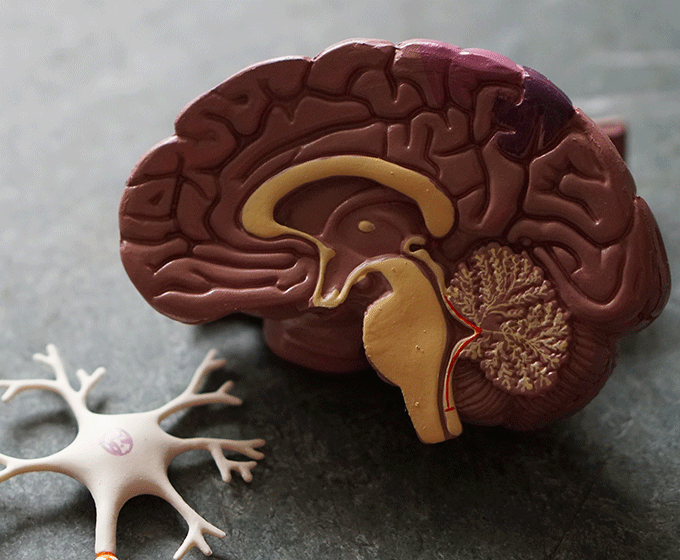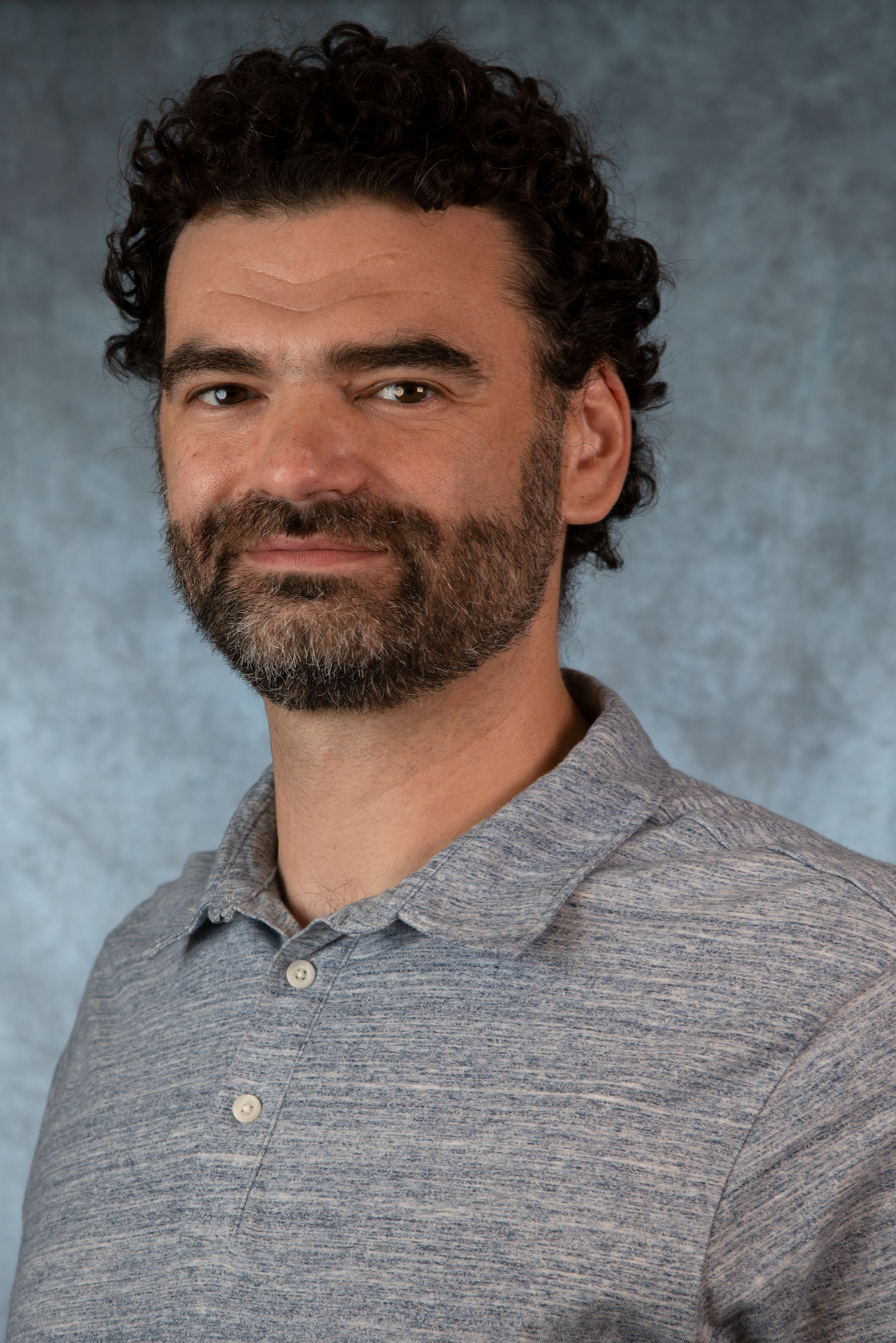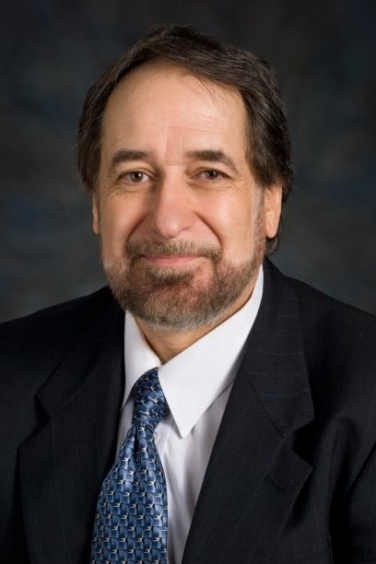
NOVEMBER 6, 2023 — UTSA associate professor of psychology Joe Houpt, is part of a team that has earned a one-year, $50,000 grant from the Mays Cancer Center at the University of Texas Health Science Center at San Antonio (UT Health San Antonio).
The project, “Surviving is Not Enough: Enhancing Cognitive Function in Cancer Survivors through Movement and Introspection,” aims to measure and enhance the cognitive functioning of cancer survivors at the Mays Cancer Center and in Laredo, Texas.
Houpt and Daniel Hughes, assistant professor of research in the Institute for Health Promotion Research at UT Health San Antonio, are the co-principal investigators on the project. Their team’s work will complement a larger project, “Using Holistic Approaches to Optimize Outcomes for Latina Breast Cancer Survivors” at the Mays Cancer Center. The Susan G. Komen® (SAC220227) funded grant focuses on integrative approaches to optimize survivors' physical, mental and spiritual functioning.
The Mays Cancer Center team has been studying the effects of breast cancer on a survivor’s spirituality, nutritional well-being and physical health. A pilot program led by Hughes during the pandemic had very positive outcomes, prompting the team to expand their local research to the 38-county catchment area of the South Texas region. They use telehealth to investigate the most effective elements of their whole-person approach to better engage survivors with their program.
 Joe Houpt
Joe HouptHoupt and Hughes’ work is filling a needed gap in these studies by assessing cognitive well-being, which includes memory and a person’s ability to concentrate, make decisions and learn new things.
“Cancer-related cognitive impairment is a fairly well-recognized phenomenon,” said Houpt, a faculty member in the UTSA College for Health, Community and Policy. “Sometimes people use the phrase ‘chemo brain,’ when really it's much broader, and it's not always just associated with chemotherapy treatment.”
According to the American Psychological Association, many breast cancer patients report cognitive impairment from chemotherapy treatment. Most fully recover within a year, but 20% to 35% continue to experience symptoms for months or even years after their chemotherapy ends.
 Daniel Hughes
Daniel HughesThe team will assess how treatments for physical, mental and spiritual well-being can also help support cognitive well-being while limiting the effects of cancer-related cognitive impairment. Patients will participate in a six-month therapeutic yoga program coupled with psycho-social support text messaging, which is based on mental state. Participants will also complete surveys and specially designed cognitive tasks. The patients’ results on the cognitive tasks will become the models for tracking a patient’s cognitive well-being.
Bryanna Scheuler, a UTSA graduate student and a researcher in Houpt’s Mathematical Cognitive Modeling Laboratory, is the student lead on the local project.
“Utilizing response time models for the neurocognitive tasks can help us break cancer-related cognitive impairment into its underlying cognitive processes,” Scheuler said. “By measuring the nuances of this impairment, we can learn if the treatment approaches are targeting the factors impeding cognitive well-being.”
Houpt and Scheuler are currently looking at funding opportunities with the National Institutes of Health to expand the project. They are working with Dr. Hughes’ group in the Laredo Mid Valley Area Health Education Center (AHEC), directed by Julie Bazan, the AHEC’s executive director, to help recruit participants. Schueler said the next step in the study is to better understand the connection between physiology particularly inflammation, and its effect on cognition.
“Most importantly, if we understand what's disrupting the cognitive processes, we can work on learning how we can better support patients in a broader sense,” Houpt said.
Hughes added, “The goal for us is to change the paradigm of survivorship using transdisciplinary, integrative approaches delivered in a structured yet individualized manner to optimize outcomes for the survivor. With telehealth technology, we will eliminate access barriers to participate in the study.”
“Understanding, maintaining and improving cognitive function are important elements in survivorship and long-term quality of life. I speak for our collective teams in saying we are thrilled for the opportunity to conduct this research,” said Hughes.
UTSA Today is produced by University Communications and Marketing, the official news source of The University of Texas at San Antonio. Send your feedback to news@utsa.edu. Keep up-to-date on UTSA news by visiting UTSA Today. Connect with UTSA online at Facebook, Twitter, Youtube and Instagram.
Move In To COLFA is strongly recommended for new students in COLFA. It gives you the chance to learn about the Student Success Center, campus resources and meet new friends!
Academic Classroom: Lecture Hall (MH 2.01.10,) McKinney Humanities BldgWe invite you to join us for Birds Up! Downtown, an exciting welcome back event designed to connect students with the different departments at the Downtown Campus. Students will have the opportunity to learn about some of the departments on campus, gain access to different resources, and collect some giveaways!
Bill Miller PlazaCome and celebrate this year's homecoming at the Downtown Campus with food, games, giveaways, music, and more. We look forward to seeing your Roadrunner Spirit!
Bill Miller PlazaThe University of Texas at San Antonio is dedicated to the advancement of knowledge through research and discovery, teaching and learning, community engagement and public service. As an institution of access and excellence, UTSA embraces multicultural traditions and serves as a center for intellectual and creative resources as well as a catalyst for socioeconomic development and the commercialization of intellectual property - for Texas, the nation and the world.
To be a premier public research university, providing access to educational excellence and preparing citizen leaders for the global environment.
We encourage an environment of dialogue and discovery, where integrity, excellence, respect, collaboration and innovation are fostered.